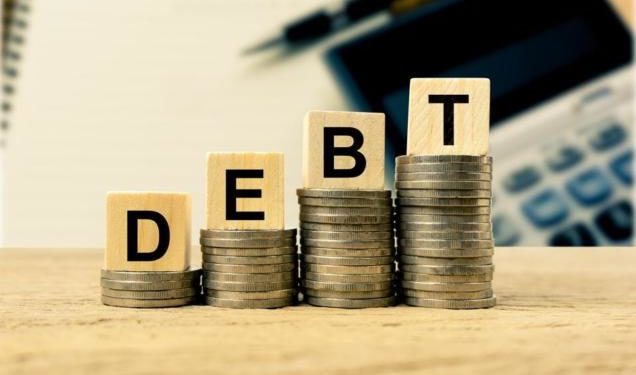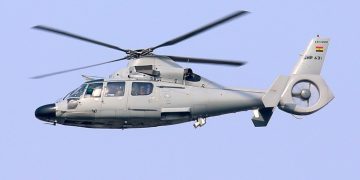Debt service: Nigeria edges closer to Lebanon crisis
Nigeria is edging closer to a Lebanon-style financial meltdown that has pushed large swaths of Lebanese either into poverty or out of the country.
New projections by the International Monetary Fund (IMF) suggesting that Nigeria could be spending 100 percent of its revenues servicing debt by 2026 means Nigeria is on the cusp of the humanitarian catastrophe playing out in Lebanon, according to several economists interviewed by BusinessDay.
If the prediction does happen, it will be a record for the West African country of 200 million people where the government’s debt servicing cost as a percentage of revenues has jumped from 32 percent in 2015 to a peak of 89 percent in 2020 before moderating to 85.5 percent in 2021, according to IMF data obtained from the Budget Office.
“The figures are scandalously high,” as one economist puts it. As at 2019, Nigeria was already paying the highest (as a percentage of its revenue) of any other country servicing debt, with Lebanon, Sri Lanka and Zambia making up the top four, according to World Bank data analysed by BusinessDay.
Lebanon, the only other country in recent history to have burnt 100 percent of its revenues paying interest to creditors at some point, continues to be mired in a seemingly never-ending financial crisis.
The picture painted by business reporters in Lebanon is a scary one. “At the height of the crisis, it was like a Ponzi scheme where the government needed new money to pay creditors or it was stuck,” a reporter in Lebanon told BusinessDay.
“Weekly grocery bills can equal months of a typical family’s income, basic medicines are often unavailable and gas-station lines can last hours. Banks are also refusing to let people withdraw money and many homes lack electricity,” another reporter covering Lebanon wrote in an article.
Lebanese are suffering after successive governments piled up debt following the 1975-1990 civil war, with little to show for their spending binge.
Lebanese banks, central to the service-oriented economy, are paralysed. Savers have been locked out of dollar accounts or told that funds they can access are now worth a fraction of their original value. The currency has crashed and the government is helpless.
In the last few years, the worsening geopolitics in the region has cut dollar inflows into the country of 7 million and that saw the government offer higher interest rates on dollar debt to help attract other foreign investors to fill the gap.
The high debt servicing cost has crippled public finances and limited the ability of the government to invest in the productive sectors of the economy with growth hovering around 1-2 percent.
Some economists have described Lebanon’s financial system as a nationally regulated Ponzi scheme, where new money is borrowed to pay existing creditors. The system works until fresh money runs out.
The World Bank has called it one of the worst financial crises in centuries and one New York Times reporter who has spent much of the past decade in Lebanon said “It really feels like the country is melting down; people have watched an entire way of living disappear.”
The country’s bad situation was made worse by the COVID-19 pandemic, the Port of Beirut explosion and most recently a food security crisis as a result of the war in Ukraine. According to World Bank analysis, Lebanon’s nominal GDP plummeted from close to $52 billion in 2019 to $21.8 billion in 2021, marking a 58.1 percent contraction.
“Despite the warning signs from Lebanon, Nigeria seems to be headed in the same direction and the IMF’s prediction for 2026 should worry every single one of us,” Mayowa Peters, an economist, told BusinessDay.
The Nigerian government like Lebanon is also borrowing so much with little to show for it. The country’s debt stock has tripled since 2015 to nearly N40 trillion in 2021, according to data from the Debt Management Office. The country’s GDP has, however, contracted by 22 percent in the same period.
The burden of interest payments is set to worsen on the back of the rise in global and local interest rates this year.
The government has refused multiple calls to ditch petrol subsidy practice that has blown holes in the public purse.
The government set aside N4 trillion in its 2022 budget, more than a quarter of the entire budget, to subsidise petrol. What is worse is a separate projection by the IMF that the bill could amount to N6 trillion as oil prices continue to rise.
For Nigeria, it would mean spending 54 percent of its estimated revenue for the whole year or 139 percent of its total actual revenues for 2021 on petrol subsidy.
“Rising debt service costs and a growing subsidy bill will leave little or nothing for critical investment in human capital and infrastructure which Nigeria badly needs,” said Muda Yusuf, an economist and CEO of the Centre for Promotion of Private Enterprise.








